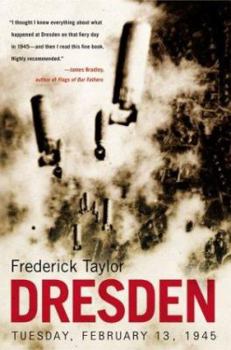Dresden: Tuesday, February 13, 1945
Select Format
Select Condition 
Book Overview
"A picture markedly different from conventional accounts." --New York Times Book ReviewThe dramatic and controversial account that completely re-examines the Allied attack on Dresden For decades it... This description may be from another edition of this product.
Related Subjects
Europe Germany History Military Political Science Politics & Social Sciences World World War IICustomer Reviews
Decent Review Of History
After reading this book the bitterness is understandable.
An unbiased account
Excel Thruout, Tho It Underplays the German Civilian Horror
Dante's Inferno in Saxony
Dresden Mentions in Our Blog

We've been feeling the love from readers across the globe about the Back to School sale, so much so, that we've decided to extend it. We're offering 15% off until the end of Sunday, August 23rd at midnight PST. Same code at checkout gives you the savings. TBTEXTBOOKS.
Actually we're feeling the used book love from a bunch of different directions. We asked some bloggers to sample Thriftbooks.com and publish their thoughts. They come at the site from different perspectives but in general the reaction is a big thumbs up.





